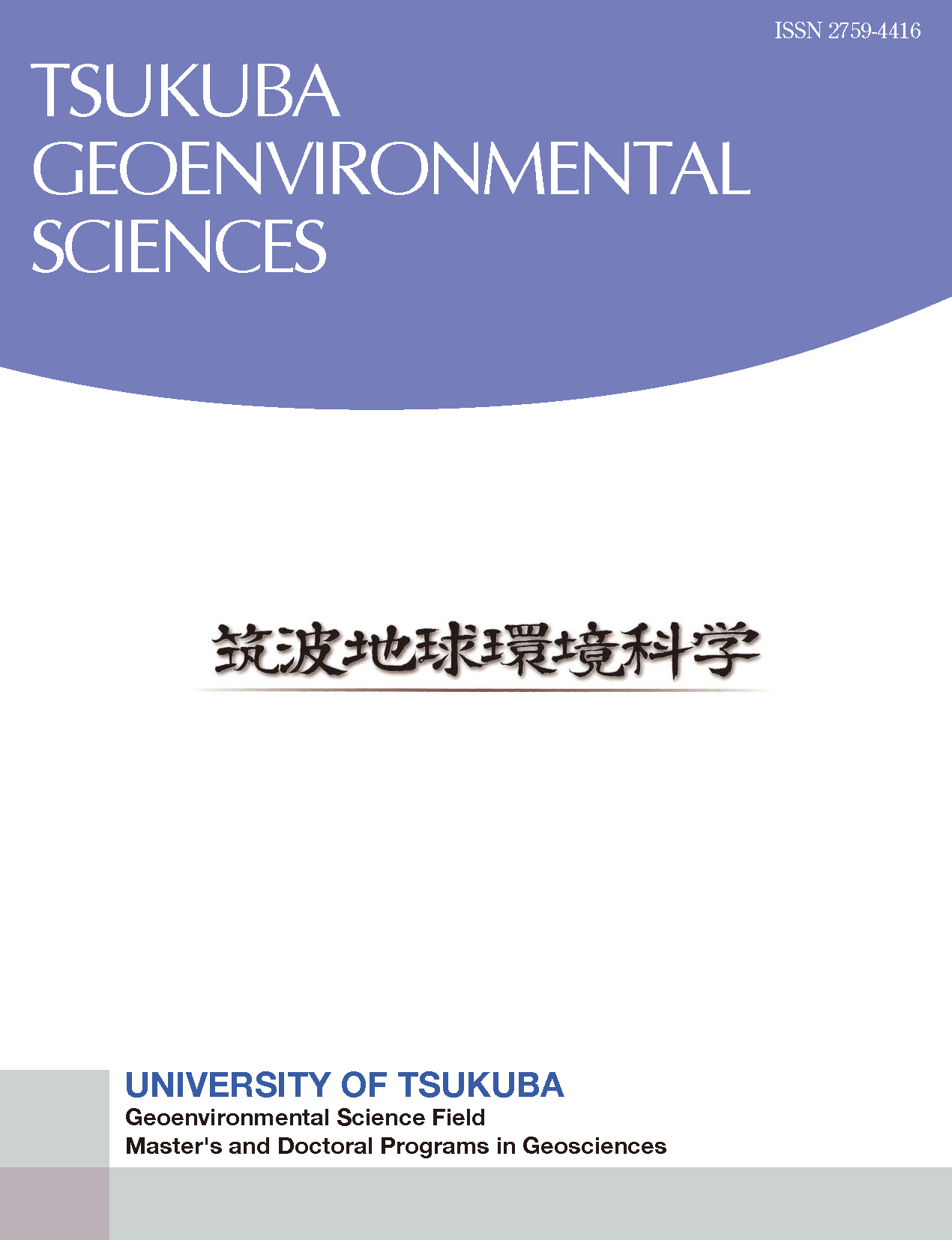
Field Outline
Geoenvironmental Science Field is focused on the temporal and spatial study of the environmental conditions across the globe. This study will be conducted from the viewpoint of natural scientific processes and mechanisms. This study also deals with gaining a complete understanding of how the human environment is affected by natural scientific processes.
Objectives
Doctoral Program in Geosciences
To train talents who have advanced expertise and research capabilities and can contribute to the scientific development of Japan as a researcher who can be successful internationally.
Master's Program in Geosciences
To train talents who understand various natural phenomena on the earth, past and present, have a wide basic knowledge and a specialized research ability to contribute towards the settlement of various issues on a global scale, and have scientific intelligence necessary to overcome those issues in today's global society.
Tsukuba Geoenvironmental Sciences

"Tsukuba Geoenvironmental Sciences" (TGS) is a former annual journal published by Geoenvironmental Science Field.
- ISSN 2759-4416
List of all contents from Vol. 1 (2005) to 20 (2024) is here.
Tsukuba Geoenvironmental Sciences ceased publication with Vol. 20 (2024).
From AY2024, only "Research and Education Activities" and "List of Publications" are posted on this website.
Activities and Publications
Academic Year 2024
| Research and Education Activities |
| List of Publications |
Research Degrees Awarded
Doctoral Program in Geosciences
Doctor of Science
Master's Program in Geoscience
Master of Science
Related Research Institutions
Related Research Centers
Some members of our faculty work for the Center for Research in Isotopes and Environmental Dynamics (CRiED) and the Center for Computational Science (CCS). They are conducting their research and educational activities using facilities in these centers.
Cooperative Graduate School Program
Members of the National Research Institute for Earth Science and Disaster Prevention (NIED) and the Meteorological Research Institute participate in the geoenvironmental study program. They serve as faculty members involved in the study of the water-related disaster science and the atmosphere-ocean interaction system. These two studies are part of the curriculum of the Cooperative Graduate School Program.
Details of the Cooperative Graduate School Programs
Research and Educational Fields
The Geoenvironmental Science Field comprises nine interdisciplinary fields of study, and two of them are part of the curriculum of the Cooperative Graduate School Program.
Human Geography 
The objective of this division is to study comprehensively and systematically the regional characteristics of terrestrial human activities from the viewpoint of the natural environment.
Regional Geography 
The human-environmental system is studied on a regional basis by focusing on the differences between the living environments in urban and rainy tropical areas.
Geomorphology 
In this division, the changes in landforms by weathering, erosion, transportation, and deposition are investigated from basic and broad viewpoints.
Hydrological Science 
The aim of this division is to comprehensively investigate the natural hydrological cycle and its physical, chemical, and biological processes.
Atmospheric Sciences 
Our group conducts broad research on atmospheric phenomena, ranging from familiar weather events such as clouds and precipitation to large-scale phenomena including monsoons and global climate systems.
Spatial Information Science 
In order to understand the changes on the ground surface and the surrounding environmental system, by performing various ground-surface-data analyses are carried out using geographical information systems (GIS) and remote sensing systems.
Analysis of Environmental Dynamics 
In order to understand dynamics of environment and evaluate changes in the environment by human activities, monitoring and modeling of water and substance are carried out on the earth surface such as forest, soil, and river system.
Cooperative Graduate School Program
Water-related Disaster Science 
In this division, we try to elucidate hydrological cycles on various scales (from those in small basins to those on continents) by numerical simulation using basic information related to hydrological science.
Cooperative Graduate School Program
Atmosphere-Ocean Interaction System
In this division, research is being conducted using super computers in order to investigate long-term climate changes and other phenomena that are induced by interactions among the atmosphere, oceans, and land.
Admission Information
Admission Information including tuition, fees, scholarships and grants is available at the website of University of Tsukuba.
For further information, applicants need to contact the faculty members in their area of specialization

